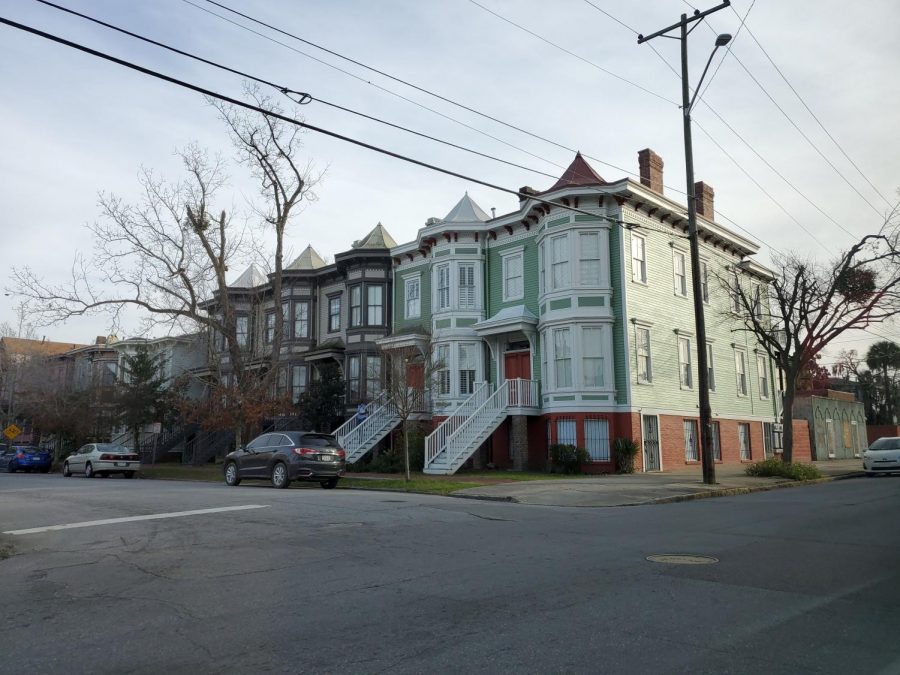Modern day redlining – beyond ink on a map
January 18, 2021
I was born with a privilege that 77,792,767 other American’s weren’t given the luxury of: being white. The fact of the matter is being white in America comes with many advantages; one that impacts a family for generations especially is home buying.
Although redlining has been deemed illegal, it has not been abolished. The systematically racist policies surrounding housing privileges for white Americans have continued into modern society, showing little signs of progress.In fact, given the practice of redlining has been outlawed and the civil rights movement has made great strides, the fact that it is still prevalent indicates a retrogression of movement. Redlining is a discriminatory system that needs to be addressed.
When applying for a home loan, minority applicants were rebuffed at vastly higher rates than white applicants. Black, Latinx, Asian, and Native Americans were rejected loans at higher rates in 48, 25, nine, and three cities across the country respectively. This is all but a coincidence, and points towards the blatantly racist country we all call the “land of the free.”
Rachelle Faroul, a 33-year-old black woman and graduate of Northwestern University, was denied a home loan as she was told her income was not consistent enough despite having a good credit score and substantial salary. After securing a full time job at The University of Pennsylvania, a highly acclaimed Ivy league university, she was still unable to acquire her loan. It is evident that as much as banks like to deny it, they still treat minorities differently and provide a ludicrous excuse in order to refute backlash towards their unfair actions.
While the median net worth of a Caucasian family is $171,000, the median net worth of a Black family is $17,150 and 20,72o for a Hispanic/Latinx family. Redlining poses unfortunate consequences for minorities, resulting in a never ending cycle plaguing generation after generation. Minorities’ small net worth compared to their white counterparts results in their children having less resources to flourish as adults. Given this is the reality, banks and lending institutions need to come up with programs and paths for minorities to obtain loans.
Despite having the same number of students, nonwhite school districts acquire 23 Billion less dollars in funding than white districts. People need to understand that a neighborhood decides which school district children are enrolled in. As such, minorities are subsequently disadvantaged in their educational opportunities as a result of modern day redlining practices.
Yes, the Fair Housing Act of 1968 “prohibited discrimination concerning the sale, rental, and financing of housing based on race, religon, nantional origin or sex.” However, the racist policies and actions prior to the enactment of the Fair Housing Act of 1968 still remain a prominent issue evident by the stark economic disparities minorities are faced with as it pertains to jobs, educational opportunities, and systemic racist treatment that is so prevalent today.
The only way to reverse the narrative is for people to start taking action in their communities. Support affordable housing in affluent towns so that property is more easily accessible for people of color who are less wealthy. Provide low-cost options in all communities so that minorities aren’t stuck in impoverished cities, unable to escape the inequities that are all to present. Employers need to be a part of the solution as well. Start closing the hiring and income gap between white people and their minority colleagues. And lastly, banks need to stop being vindicated of their wrong doings facing hefty fines for redlining and should reflect on their unjust practices and provide the necessary training to its employees..
America is known as the place where anybody can achieve his or her dream. For people of color, how is that possible if they can’t buy a home without being severely disadvantaged? America needs to do better. Let’s take the ink from the maps, and use it for signatures on mortgages.









